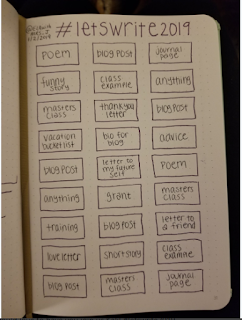I am sure I cannot add anything new to the discussions; however, I had a light bulb moment tonight and felt the need to write about it.
My students are getting ready to write open letters where they can combine their research skills with argument skills and write about an issue that concerns them. Believing that teachers should be writers, too, I set out tonight to research articles on Accelerated Reading. Yes, I am writing a letter to my superintendent arguing that we should do away with AR.
 I wanted to find an article about the inconsistencies of the reading levels with age-appropriate levels of books. I was immediately disheartened (but not surprised) by the number of images of color coded stickers for classroom libraries that came up in my initial my search.
I wanted to find an article about the inconsistencies of the reading levels with age-appropriate levels of books. I was immediately disheartened (but not surprised) by the number of images of color coded stickers for classroom libraries that came up in my initial my search.Reading further, I came across a position statement on labeling books by reading level by the American Association of School Librarians. It states the following:
"Labeling and shelving a book with an assigned grade level on its spine allows other students to observe the reading level of peers, thus threatening the confidentiality of students’ reading levels. Only a student, the child’s parents or guardian, the teacher, and the school librarian as appropriate should have knowledge of a student’s reading capability."
I began thinking about the teachers who level their classroom libraries, school libraries with non-standard shelving practices and the students who select books from those shelves, and students who carry around cards or name tags identifying them by reading levels or colored dots.
All of these practices are public displays of confidential information. If I were to tell a student or a parent another student's test scores, grades, or even their address, I would be breaking the Family Educational Rights and Privacy Act (FERPA). Yet, we are making confidential information public for all to see in our classrooms and in our schools.
I have always believed that reading labels should be for books and not students, but honestly, I never thought about it as breaking a law.
Until tonight.
For more reading on this same issue, check out this article by Dr. Molly Ness.





























